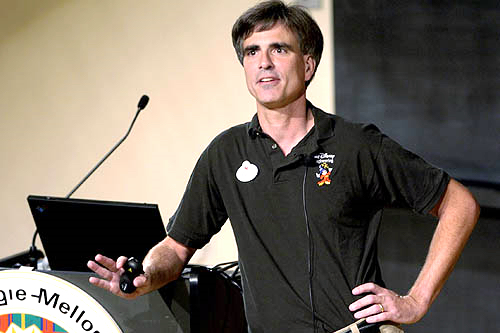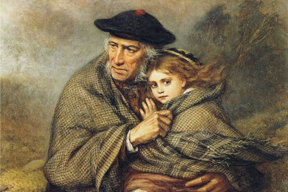On This Pale Blue Dot
This essay addresses one of my idiosyncrasies. This article attempts to grasp why I love poetry or prose. That question haunts me. I won’t be satisfied until I fully understand why.
I have written about the trauma of Mt. Lebanon. One aspect of that trauma related to memorizing a hundred lines of poetry or prose per semester while in high school. I hated it. I would have to go in early before school started or stay at the end of the day and recite lines that I memorized. I would rather clean up my bedroom and do chores around the house than repeat a couple of stanzas in front of my English teachers. Of all my teachers, Mrs. Davis would scowl at me when I didn’t recite some passage verbatim.
However, my repository of remembered lines of poetry or prose that I can still repeat reasonably close to the original words amazes me. In my senior year, I dated Nancy Nuernberg. She was the valediction of our class in 1961. Six decades ago, she was taking college-level courses while still in high school. She was brilliant. However, I’d bet any amount of money that I could easily recall today more lines than her or anyone else in my class.
A part of my infatuation relates to the cadence of the poetry or prose, alliteration, rhyme, content, and meaning behind the poetry or prose.
One of my favorite pieces of prose was by George Eliot, which was her pen name for Mary Ann Evans. She wrote a novella entitled Silas Marner. Eliot published it in 1861, precisely a century before I stood in front of Mrs. Davis to recite this passage from Silas Marner in my senior year. While I genuinely disliked memorizing anything, I have benefited greatly from those lines memorized six decades ago.
In old days there were angels who came and took men by the hand and led them away from the city of destruction. We see no white-winged angels now. But yet men are led away from threatening destruction: a hand is put into theirs, which leads them forth gently towards a calm and bright land, so that they look no more backward; and the hand may be a little child’s.

Eppie was the little girl that wandered into Silas Marner’s life, which changed him. She “led him away from threatening destruction.” Little children can do the same for each of us. Trust me; I know that firsthand. It intrigues me how little children teach, guide, and redeem us, which is a juxtaposition from what we usually think. We think that we are the instructors and the change agents for children. That is not always the case.
In my previous article, I mentioned James Wells, who told a story of another little girl struggling while carrying her brother. A passerby asked the little girl whether she was tired of carrying her younger brother. The little girl replied, “No, he’s not heavy; he’s my brother.”
Two little girls, one from England and the other from Scotland, both possessed a mission in their lives. They reached out to others. One was an old man, and the other was her brother.
While both storylines are moving, it raises the question of who constitutes our brothers. In our journey down the yellow brick roads of our lives, we need to be more inclusive regarding who our brothers are. Eliot understood that we need to redefine who they are. Eliot wrote, “Our deeds determine us as much as we determine our deeds.”
We need to be more inclusive in our journey. We all live on this small blue dot out in the vastness of the cosmos. Our world is in the midst of the COVID pandemic. America is nearing the point of controlling the coronavirus. However, much of the rest of the world is a long way away from coping with it. We need to redefine who our brothers and sisters are. If we don’t reach out to the rest of the world, our indifference will adversely affect us. The longer that it takes to address stopping COVID, the new strands will develop. That reality might come back to haunt us. It is in our best interests to help our brothers and sisters wherever they live to address this pandemic.
Racism still plagues America. Racism dates back over four centuries. Again, if we don’t redefine who our brothers and sisters are, we will suffer. What is applicable to racism applies to sexism. Shades of skin color or our gender are irrelevant. We live on a blue dot in the vastness of the universe. It is our only home. And we need to redefine who are our brothers and sisters.
Listen to Carl Sagan.
Look again at that dot. That’s here. That’s home. That’s us. On it everyone you love, everyone you know, everyone you ever heard of, every human being who ever was, lived out their lives. The aggregate of our joy and suffering, thousands of confident religions, ideologies, and economic doctrines, every hunter and forager, every hero and coward, every creator and destroyer of civilization, every king and peasant, every young couple in love, every mother and father, hopeful child, inventor and explorer, every teacher of morals, every corrupt politician, every “superstar,” every “supreme leader,” every saint and sinner in the history of our species lived there--on a mote of dust suspended in a sunbeam.
The Earth is a very small stage in a vast cosmic arena. Think of the rivers of blood spilled by all those generals and emperors so that, in glory and triumph, they could become the momentary masters of a fraction of a dot. Think of the endless cruelties visited by the inhabitants of one corner of this pixel on the scarcely distinguishable inhabitants of some other corner, how frequent their misunderstandings, how eager they are to kill one another, how fervent their hatreds.
Our posturings, our imagined self-importance, the delusion that we have some privileged position in the universe, are challenged by this point of pale light. Our planet is a lonely speck in the great enveloping cosmic dark. In our obscurity, in all this vastness, there is no hint that help will come from elsewhere to save us from ourselves.
The Earth is the only world known so far to harbor life. There is nowhere else, at least in the near future, to which our species could migrate. Visit, yes. Settle, not yet. Like it or not, for the moment the Earth is where we make our stand.
It has been said that astronomy is a humbling and character-building experience. There is perhaps no better demonstration of the folly of human conceits than this distant image of our tiny world. To me, it underscores our responsibility to deal more kindly with one another, and to preserve and cherish the pale blue dot, the only home we’ve ever known.














